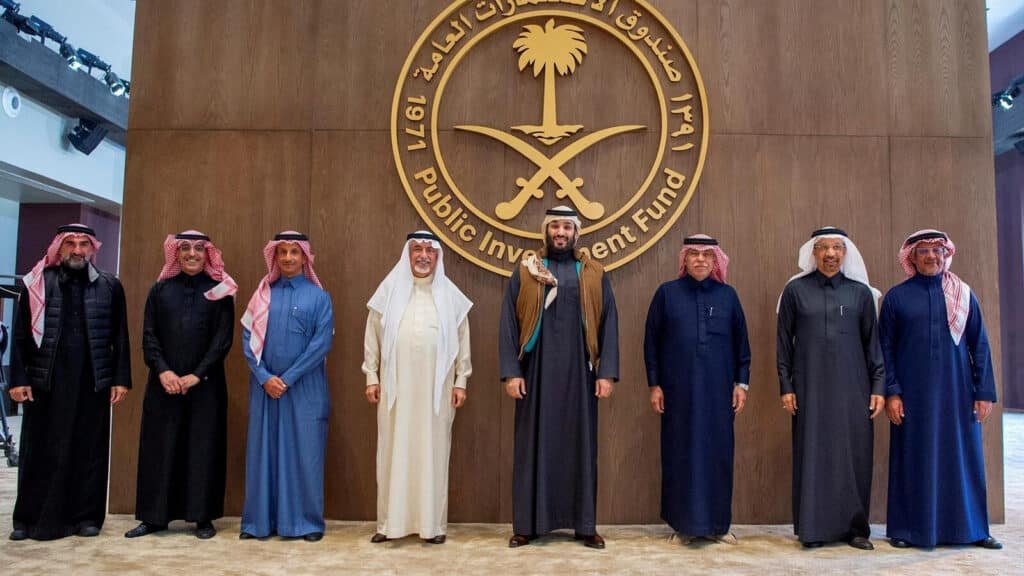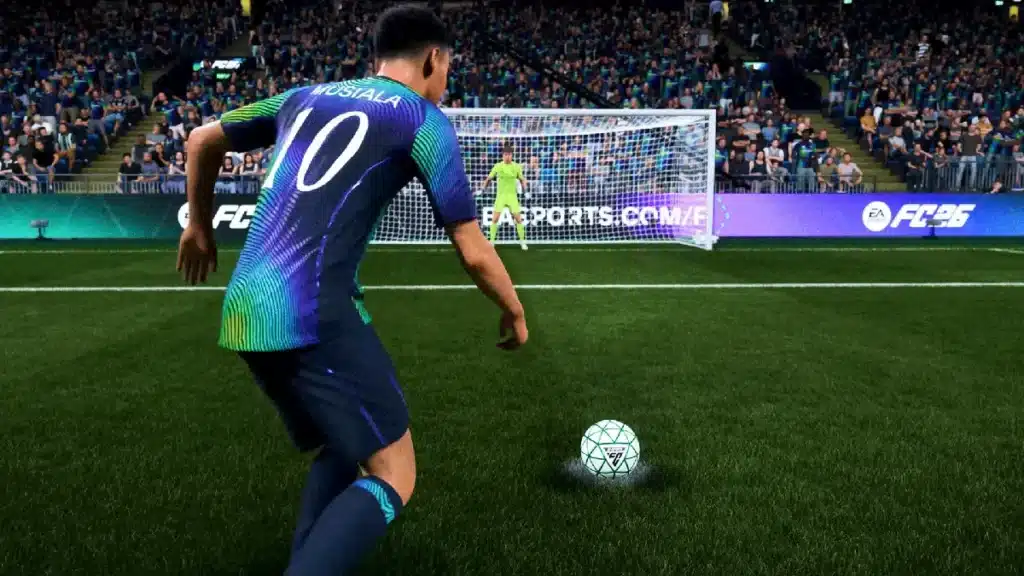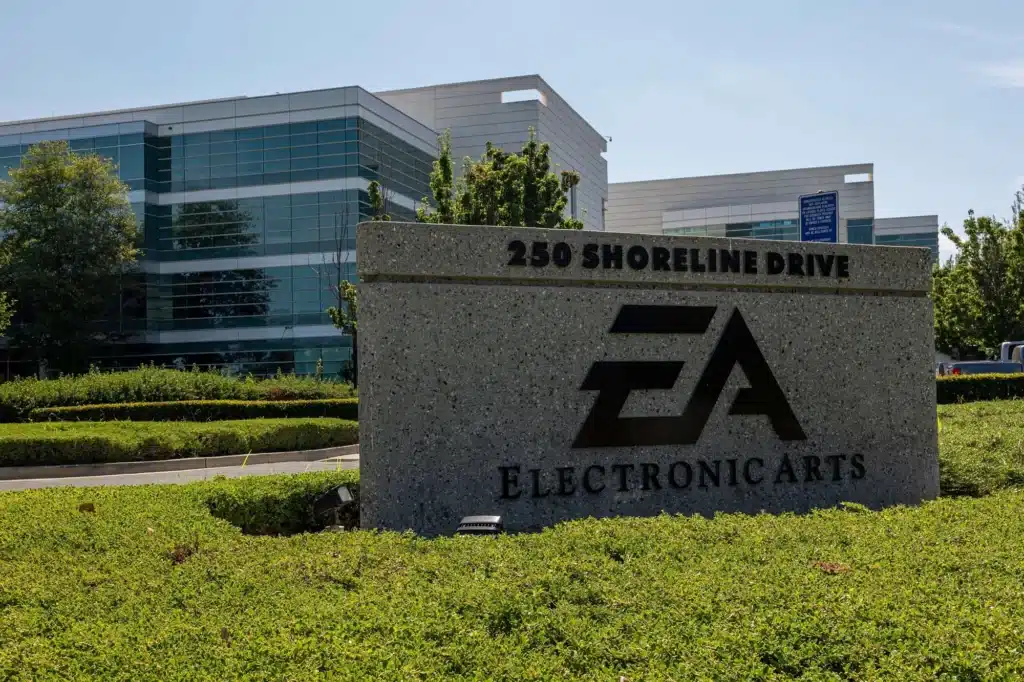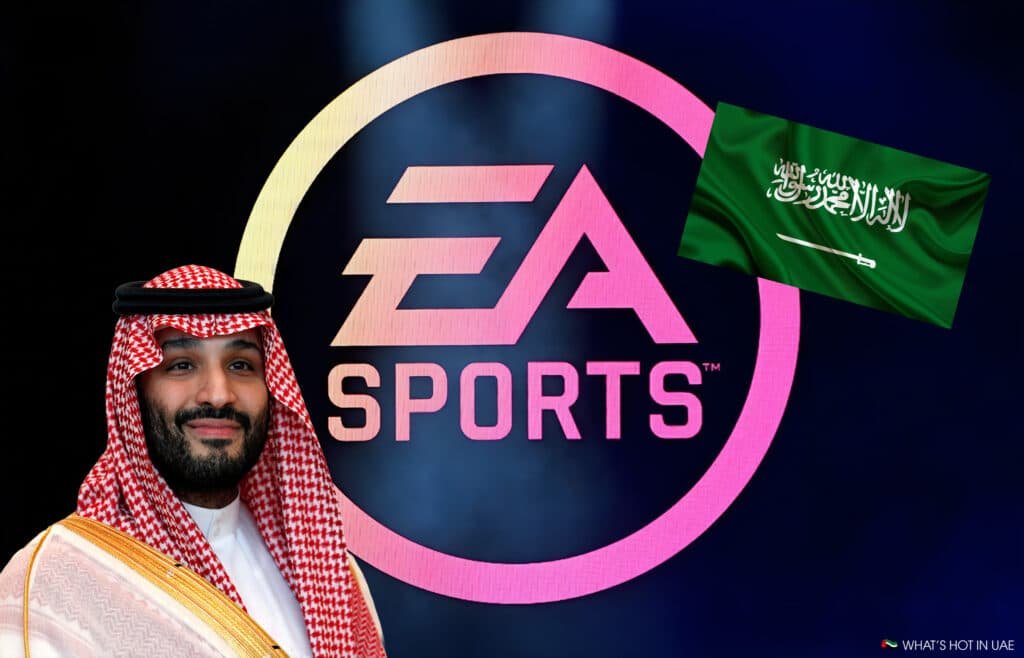Saudi Arabia buys EA in a jaw-dropping $55 billion takeover that changes everything. The kingdom’s Public Investment Fund just made gaming history alongside Silver Lake and Affinity Partners. For players across the UAE and beyond, this seismic shift promises fresh possibilities and a few big questions.
A Deal That Rewrites the Rulebook
Electronic Arts is no longer answering to Wall Street. The company behind Fifa, The Sims, Battlefield, and Apex Legends now belongs to a consortium led by Saudi Arabia’s sovereign wealth fund. This isn’t just another acquisition—it’s the second-largest gaming buyout ever recorded, trailing only Microsoft’s Activision Blizzard purchase.
The numbers are staggering. Fifty-five billion dollars buys you four decades of intellectual property, global audiences, and instant credibility in digital entertainment. For gamers in Dubai, Riyadh, and everywhere else, the real intrigue lies in what happens next.
Going private means EA escapes the quarterly earnings treadmill. Developers can breathe. Creative teams can dream bigger. Long-term projects become viable instead of risky. That shift alone could transform how EA builds games.
Why Saudi Arabia Wants Gaming Dominance
The kingdom isn’t dabbling—it’s going all in. Gaming forms a cornerstone of Saudi Arabia’s economic diversification strategy, reducing reliance on oil revenues whilst building cultural influence. Billions have already flowed into esports tournaments, infrastructure projects, and studio partnerships across the region.
Owning EA accelerates everything. The portfolio includes sports juggernauts, beloved simulation titles, competitive shooters, and mobile hits. These franchises reach hundreds of millions of players annually across every continent. That’s soft power you can’t manufacture overnight.
For the UAE’s gaming community, this investment signals something larger. The Gulf is becoming a genuine force in global entertainment, not just a market to sell into. Expect more tournaments, more studios, and more local talent getting opportunities.
Saudi Arabia buys EA knowing that gaming outearns Hollywood and music combined. The PIF sees what others missed: interactive entertainment is the defining cultural medium of this century. Getting in at this scale positions the kingdom as a primary architect of gaming’s next chapter.

What EA Actually Is (And Why It Matters)
Founded in 1982, Electronic Arts pioneered the concept of treating game developers as artists. That ethos faded over time, replaced by aggressive monetisation and annualised releases. Still, EA’s catalogue remains unmatched in breadth and cultural penetration.
EA Sports FC (formerly Fifa) sells more copies than any sports title in history. Madden NFL dominates American football gaming completely. The Sims turned life simulation into a multibillion-dollar category. Battlefield competes directly with Call of Duty for shooter supremacy.
Then there’s Apex Legends, the battle royale that somehow challenged Fortnite and won respect. Add in legacy franchises like Mass Effect, Dragon Age, and Need for Speed, and you’ve got depth that few publishers can match.
But EA’s reputation took serious hits. Loot box controversies, studio closures, and repetitive yearly updates earned the company mockery and distrust. Star Wars Battlefront II became gaming’s cautionary tale about monetisation gone wrong. Fans worldwide grew cynical about EA’s priorities.
That history makes this moment crucial. New ownership brings a chance to reset relationships with players and developers alike. Whether that happens depends entirely on what PIF and its partners choose to prioritise.
The Private Ownership Advantage
Public companies live and die by quarterly results. Miss earnings targets and your stock plummets. That pressure forces short-term thinking, safe bets, and rushed releases. Innovation suffers when executives answer to impatient shareholders every ninety days.
Saudi Arabia buys EA specifically to escape that trap. Private ownership changes the entire calculus. Development cycles can stretch to five or seven years without panic. Experimental projects get greenlit. Creative risks become acceptable again.
Look at what happened when Epic Games stayed private. Fortnite evolved constantly because Tim Sweeney didn’t answer to Wall Street analysts. Valve never went public and produced Half-Life Alyx, a VR masterpiece with uncertain commercial returns. Private ownership protects creativity.
For EA’s studios, this could mean everything. Developers at DICE, BioWare, and Respawn have worked under intense pressure for years. Imagine what they could build with proper time and resources. Imagine Battlefield getting the development cycle it deserves.
The financial structure also matters. Silver Lake brings expertise in scaling tech companies. Affinity Partners adds strategic connectivity. PIF provides patient capital and global ambition. That combination could genuinely unlock EA’s potential.
What Changes for Players
Gamers care about one thing: better experiences. Everything else is corporate noise. So what actually improves if this deal succeeds?
Sports titles could finally evolve meaningfully. EA Sports FC has felt stagnant for years, adding minor tweaks whilst charging full price. With multi-year development breathing room, the next iteration might justify the hype. Madden and NHL could follow suit.
Live service games like Apex Legends need consistent, high-quality updates. When profit pressure eases, developers can focus on what players actually want instead of what drives microtransactions. That shift alone would transform community sentiment.
Ambitious single-player experiences become viable again. EA’s back catalogue includes narrative masterpieces like Mass Effect and Dead Space. Sequels and spiritual successors could happen without shareholders demanding guaranteed returns.
New intellectual property is the ultimate test. Great publishers create new worlds, not just milk existing ones. If Saudi Arabia buys EA and greenlights five bold original games, that’s success. If we get endless sequels, nothing really changed.
Technology investment matters too. Cloud gaming, advanced AI systems, and next-generation graphics require serious capital. Private backing makes those investments easier. The UAE’s gaming community could see genuinely innovative experiences emerge.

The Bigger Industry Picture
This deal doesn’t happen in isolation. Microsoft bought Activision Blizzard for $75.4 billion in 2023. Sony continues acquiring studios aggressively. Tencent owns pieces of almost everything. Consolidation is reshaping gaming’s entire landscape.
Sovereign wealth funds are becoming major entertainment players. Saudi Arabia leads the charge, but UAE entities are active too. The region sees gaming as strategic, not frivolous. That perspective brings resources and patience Western publishers often lack.
For developers, consolidation creates uncertainty. Will giant conglomerates stifle creativity or enable it? History suggests both outcomes happen depending on leadership quality. EA’s trajectory under PIF will set important precedents.
The esports dimension is equally significant. Saudi Arabia already hosts major tournaments and invests heavily in competitive gaming infrastructure. Owning EA means controlling premier esports titles and leagues. That influence extends across the entire competitive gaming ecosystem.
Cultural shifts follow economic ones. As Gulf nations invest in gaming, their perspectives and priorities will shape content. That could mean more regional representation, Arabic language support, and stories that reflect Middle Eastern experiences.
Challenges and Scepticism
Not everyone celebrates this deal. Critics question whether Saudi Arabia’s government-linked investment fund should control major entertainment properties. Concerns about censorship, creative freedom, and political influence are legitimate and worth examining.
EA’s track record also breeds scepticism. One ownership change doesn’t erase decades of decisions that prioritised revenue over player satisfaction. Trust must be earned through actions, not press releases.
Developer culture is another question mark. EA studios have experienced significant turnover and reported challenging working conditions. Will new ownership improve those realities or maintain the status quo?
Monetisation practices remain contentious. Loot boxes, season passes, and microtransactions aren’t going anywhere soon. The question is whether they’ll be implemented fairly or exploitatively. Players have long memories and little patience for manipulation.
Regional political considerations matter too. Saudi Arabia’s gaming ambitions exist within complex geopolitical contexts. How that influences content decisions and market strategies will reveal itself over time.
The UAE Gaming Connection
For residents and visitors here, this deal hits close to home. The UAE and Saudi Arabia both position themselves as regional entertainment hubs. Competition and collaboration define the relationship.
Dubai hosts massive gaming events and esports tournaments. The UAE’s game development community grows steadily. Local talent increasingly contributes to global projects. When Saudi Arabia buys EA, it raises the profile of Gulf gaming broadly.
Cross-regional opportunities will expand. Tournaments might alternate between Riyadh and Dubai. Studios could open in both countries. Investment flows more freely when major players commit seriously.
The cultural exchange matters most. Young Emiratis and Saudis grow up gaming together online. Their shared experiences shape perspectives and friendships. Major investments legitimise gaming as a career path and creative outlet, not just entertainment.
Expect Arabic language support to improve across EA titles. Regional servers should get better treatment. Local partnerships and sponsorships will multiply. These might seem like small changes, but they signal respect and attention.

What Happens Next
The deal still requires regulatory approval in multiple jurisdictions. Assuming it clears, EA will complete its transition to private ownership throughout 2025. Real changes won’t surface immediately—these transformations take years.
Watch for leadership announcements. Who runs EA day-to-day matters enormously. If PIF installs gaming veterans who understand community dynamics, that’s encouraging. If they prioritise pure financial optimisation, expect more of the same.
Development timelines offer another indicator. If EA Sports FC 26 looks identical to FC 25, nothing changed. If the company delays releases to improve quality, that signals genuine philosophical shifts.
Studio investments tell the truth. Does EA acquire more teams or streamline existing ones? Do developers report better conditions or business as usual? Those answers reveal whether rhetoric matches reality.
The UAE gaming community should stay engaged. Voice matters, especially when companies claim to prioritise players. Support good decisions, criticise bad ones, and remember that loyalty must be earned continuously.
Looking Forward
Saudi Arabia buys EA at a pivotal moment for gaming. The industry stands at crossroads between art and commerce, creativity and exploitation, innovation and stagnation. How this acquisition plays out will influence gaming’s direction for decades.
The opportunity is genuine. EA possesses incredible talent, beloved franchises, and global reach. With proper stewardship, the company could reclaim its reputation as an innovator whilst building experiences that resonate emotionally.
The risk is equally real. Without cultural change, new ownership just means different executives making similar mistakes. Players won’t tolerate empty promises or superficial improvements.
For gamers in the UAE and worldwide, this deal deserves attention and scrutiny. Gaming matters because it connects us, challenges us, and lets us explore possibilities beyond our daily lives. When major publishers change hands, our experiences change too.
The next chapter begins now. Whether it’s worth reading depends entirely on what happens next.
FREQUENTLY ASKED QUESTIONS
EA was acquired for $55 billion by Saudi Arabia’s Public Investment Fund, Silver Lake, and Affinity Partners.
Private ownership frees EA from quarterly earnings pressure, allowing longer-term investments and more creative risk-taking.
Players could see more innovative titles, better live services, and deeper improvements to sports franchises.
It is the second-largest acquisition in gaming, behind Microsoft’s $75.4 billion Activision Blizzard deal.
It must overcome past criticism of microtransactions, annualised titles, and shutting down smaller studios.
PIF is diversifying the economy, aiming to make gaming and digital entertainment key sectors of its future.
EA Sports FC, Madden NFL, The Sims, Battlefield, and Apex Legends.
Private ownership may allow more meaningful upgrades instead of annual iterations with minimal changes.



